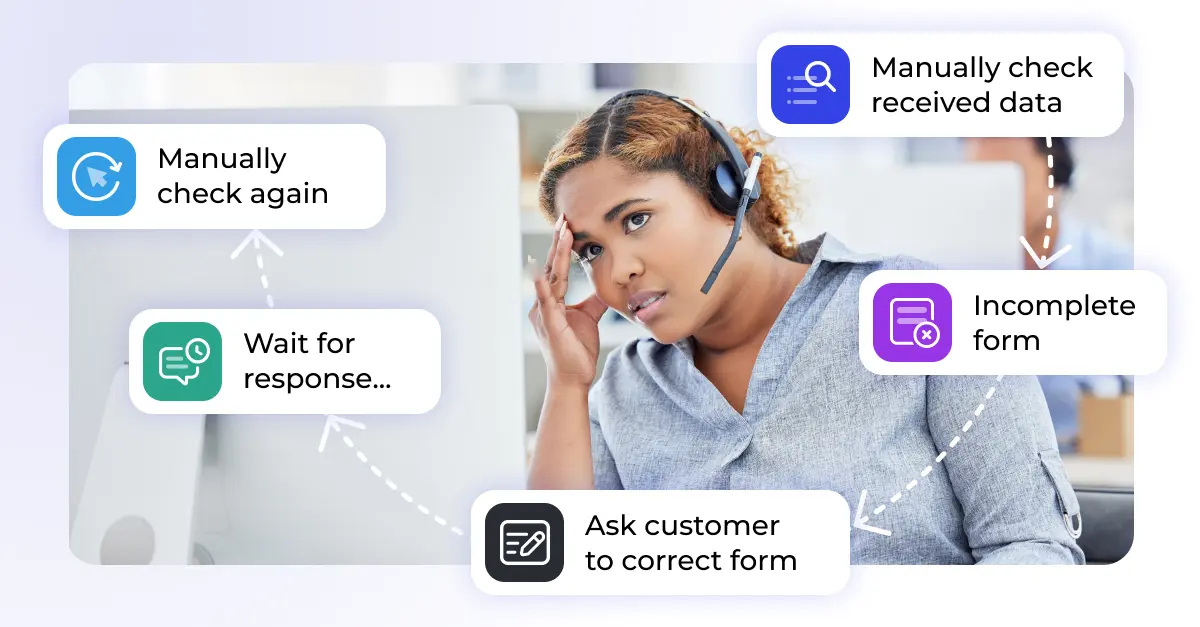The key benefits of AI in customer service: Changing support for the better
Customer service has always been at the heart of business success, but today, AI in customer service is taking it to new levels. A recent Zendesk report highlights that 73% of consumers will switch to a competitor after experiencing multiple poor interactions, while nearly 90% of customers are ready to move to another company for a superior customer experience (CX). For businesses of all sizes, the pressure to deliver fast, personalized, and seamless support is relentless.
This is where artificial intelligence (AI) steps in—not just as a trendy buzzword but as a powerful tool transforming the way companies connect with their customers. From automating routine tasks to enhancing real-time interactions, and analyzing data, AI-powered customer service is reshaping customer service across industries, empowering teams to meet rising expectations while staying efficient.
In this article, we’ll explore how AI is shaping the future of customer service, offering key insights on how to leverage these technologies. You’ll discover how customer service AI solutions help teams become more agile and responsive, streamlines workflows, and ensures that support operations can scale effectively—without overburdening your staff.
What does AI in customer service mean?
At its core, Artificial intelligence in customer service is all about making smart use of technologies like chatbots, AI-driven ticket routing, and predictive analytics to enhance the capabilities of your customer support team. It’s not about complicating things—quite the opposite. AI is here to simplify routine tasks that don’t require a human touch, allowing your team to focus on building authentic, meaningful connections with customers. By automating the repetitive, AI frees up teams to focus on delivering personalized service where it matters most.
The customer service landscape today
Customer service has always been a critical aspect of business success, but its role has expanded dramatically in recent years.
Customer expectations are sky-high
Today’s customers expect companies to provide consistent service across multiple channels, whether they’re reaching out via phone, chat, social media, or email. Meanwhile, 90% of consumers say an immediate response—under 10 minutes—is critical when they have a question or issue.
AI is becoming a core business tool
To meet these heightened expectations, businesses are increasingly turning to AI. In fact, 70% of CX leaders plan to integrate generative AI into many customer touchpoints within two years. Companies understand that without AI and customer service working together, keeping up with demand can be challenging.
The shift to proactive, not just reactive, support
Another major change is the shift toward proactive service. Instead of waiting for customers to contact support teams with problems, businesses are starting to predict and address issues before they arise. For example, AI can analyze usage data and send automated notifications to customers if it detects unusual activity on their accounts, suggest password updates or additional security checks before any breach occurs. If AI identifies a pattern of frequent support tickets related to a product feature, it can trigger a proactive outreach campaign, providing tutorials or troubleshooting tips to customers before they even need to ask for help.
This proactive approach not only improves the customer experience but also reduces the number of inbound support requests, creating a win-win for both customers and businesses.
AI solutions making customer support easier to manage and scale
Here’s why AI has quickly moved from a nice-to-have to an essential tool for delivering top-tier service:

Always available, 24/7
AI never takes breaks. Whether it’s a busy Monday morning or 3 AM on a Sunday, your customers can still access support and get the answers they need instantly. This around-the-clock availability ensures that you’re never left playing catch-up with a backlog of tickets. In fact, 88% of consumers are more likely to make another purchase after a positive customer service experience, which makes 24/7 AI-powered support essential for businesses aiming to consistently meet customer expectations.
Relieves your team from repetitive tasks
Handling the same routine questions—like password resets or order tracking—can quickly burn out a customer support team. For example, AI chatbots can automatically handle these types of inquiries by recognizing keywords like “forgot password” or “track my order,” and responding with pre-written, contextually relevant answers. Additionally, AI can categorize and route tickets based on the content, ensuring they go to the right department without manual intervention. This allows human agents to focus on more complex, emotionally driven issues like resolving customer disputes or handling specialized product questions. Studies show that AI can reduce customer service costs by up to 30%, allowing your team to work smarter, not harder.
Cuts costs while maintaining quality
AI not only improves efficiency but also helps manage costs without sacrificing service quality. Automating routine processes reduces the need for additional staffing during peak times, saving on operational costs. At the same time, your customers receive faster responses, improving their experience. And with 68% of consumers willing to pay more for products from companies offering good service, the value of maintaining high-quality support cannot be overstated.
Delivers personalized experiences at scale
AI’s ability to learn from customer interactions means personalization is no longer just for VIPs. By tailoring responses based on past behaviors and preferences, AI ensures every customer feels known and valued. And customers notice—86% of buyers say they’re willing to pay more for a personalized experience.
How AI in customer service is already changing the game
AI is already making a tangible difference in customer service today. Here are some of the ways AI is reshaping support operations:
AI chatbots: The friendly first line of contact
Today’s AI-powered chatbots are smarter and more intuitive than ever. They handle routine inquiries, engage in natural conversations, and—most importantly—know when it’s time to hand over complex issues to a human agent. By integrating the best AI chatbots, businesses can provide fast, effective support without sacrificing the human touch.
Sentiment analysis: Understanding how customers feel
In a world where emotions drive purchasing decisions, AI’s ability to detect the sentiment behind customer inquiries is a game-changer. Sentiment analysis allows AI to sense frustration, urgency, or confusion in a message and ensures those tickets are flagged for immediate attention. This helps businesses respond more thoughtfully and prevent minor frustrations from turning into major issues. After all, it takes 12 positive interactions to make up for just one negative experience. For example, tools like Sentiment Analysis for Zendesk simplify emotion detection, helping your team respond faster and more insightfully, creating smoother customer interactions.
Predicting issues before they escalate
AI can detect patterns in customer behavior and predict when issues are likely to arise. By identifying and addressing potential problems before customers even report them, AI helps businesses offer proactive support. This not only improves customer satisfaction but can also prevent costly disruptions in service—something crucial in industries where smooth operations are critical.
Smarter ticket routing: getting tickets to the right place, fast
Routing tickets to the right team or agent can be a time-consuming process that often leads to delays. AI analyzes ticket content, urgency, and customer history to ensure that every issue lands with the best-suited agent, leading to quicker resolutions and fewer frustrated customers. For example, tools like the Classify Intention app from Knots automatically sort and route tickets based on specific categories, helping streamline the entire Zendesk workflow.

Future AI trends: what’s next in customer service?
Here are three key AI trends that are transforming customer service, prompting businesses to be more agile and forward-thinking:
- Voice and speech recognition
Voice technology is rapidly improving, allowing more seamless and natural customer interactions. This means clients can engage with support through voice commands, leading to faster and more intuitive experiences. As voice recognition grows in sophistication, it’s set to become a core part of customer service, particularly in industries requiring hands-free support. - AI-powered video support
Video support is evolving, with AI making it more interactive and effective. For industries like manufacturing or IT, AI-powered video enables real-time, personalized troubleshooting. Imagine customers getting live, AI-driven guidance during a video call, with solutions provided directly on-screen. This technology is already changing how businesses deliver specialized, visual support. - Quantum computing and AI
Though still emerging, the combination of quantum computing and AI promises to transform how businesses handle data. Quantum computing will supercharge AI’s capacity for predictive analytics and hyper-personalization, helping businesses predict customer needs with greater precision and allow them to offer more proactive and personalized service.
Embracing AI for customer support that’s ready for tomorrow
At Knots, we specialize in transforming customer service through AI-powered customer service solutions tailored to Zendesk. Whether it’s using ChatGPT to craft smarter replies or automate them, we offer AI-driven tools that help your team stay ahead of the curve. The future of business is already here, and with Knots, you’re not just keeping up—you’re leading the way.








